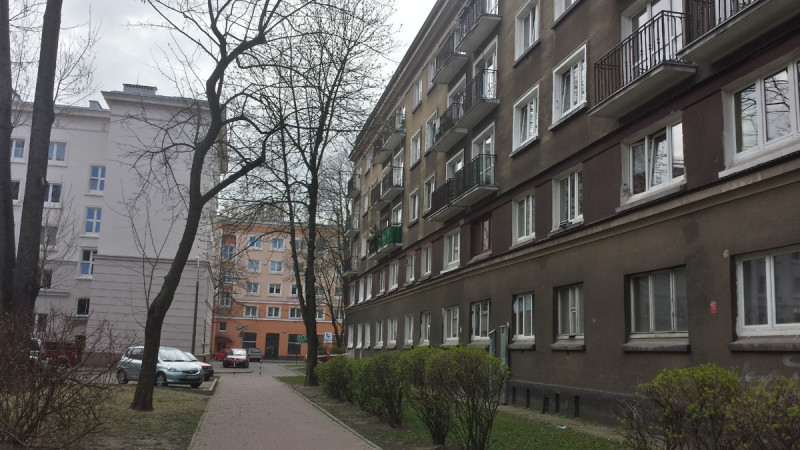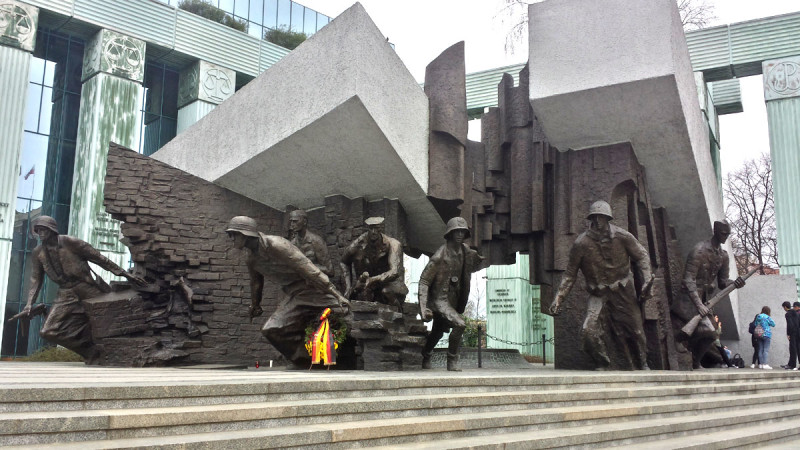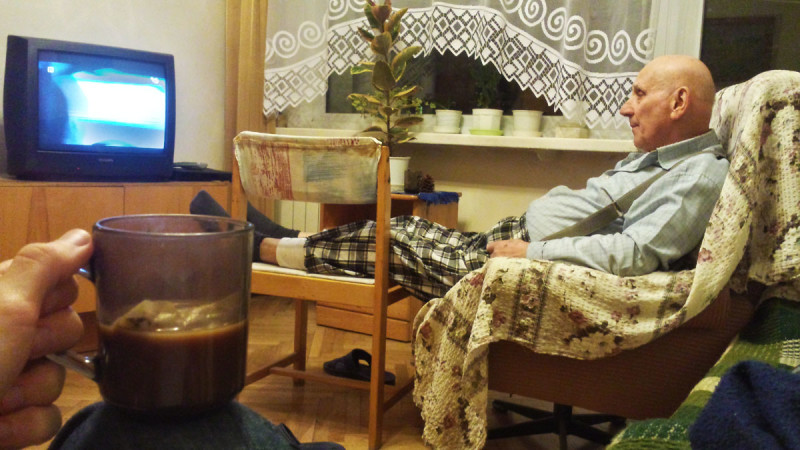It’s been a week staying with my grandfather back in Poland, one of many unfortunate ones to live through the Nazi occupation. Today, he shared his stories.
Note:this is a serious post that some may find disturbing.
Missed the first Part? Start Here or read the Previous Part!
When Russians were closing in on Warsaw, the denizens were shuffled out. My grandfather, a 15 year old boy at the time, marched in a column towards one of the concentration camps. An assured fate waiting to happen. Seizing a moment of German distraction, his mother and he leaped into the nearby bushes and waited. When all passed, they hiked through the woods to find their aunt in Pruszków.
They hid at her house as German cars drove around blasting the same announcements on the loudspeaker: all Warsaw deserters will be shot. They could be easily identified when asked for the official identification papers, or simply by looking at the bleak-blue numerical tattoos that still refuse to fade from my grandfather’s arm today.
After a week at their aunt’s, my grandfather and his mom snuck ticket-less on a train “na gape” to get even further away. It was the second (or more likely, a hundredth) time they fled in the Nazi shadows. The magnificence of their daring survival was juxtaposed against my grampa’s charismatic storytelling. Just a little 15 year old boy’s fun weekend adventure.
On the way home, my grandfather complained about the vomit-yellow papers crudely taped to lamppost by those trying to sell a couch or find a lost dog. With a smile, he shared another quip: “Do you know how those began?” He got my interest. “After the war, we were all scattered. So people would post papers with little notes like “Józek, I’m alive, I’m at Marszałkoska 3 street!” It’s mind-boggling to me, someone inevitably wasting the power of Twitter to merely advertise his blog, reaching everyone around the world with little thought.
As we walked further, my grandfather pointed at a derelict gray building which clearly witnessed more than it should have. “I was born there,” he said, and we strolled around his childhood home. We marveled at the old dentist office with manually operated drills now replaced by a chic vape store “De Luks”.
Before the war, my grandfather lived in Sielce, one of many Warsaw districts which started as a rural village. In his time, it was little more than a mess of one or two story houses surrounded by trees, with an icy lake he once fell into. He dried off at his friend’s, afraid to tell his parents lest they punish him with cleaning the dreaded soot from the oil lamp. There was no power or running water.
The neighborhood reminded him of childhood playtime. Baseball had not quite made it to Poland at the time, but hefty rocks and moving targets proved a fine replacement. Perhaps out of spite, perhaps for childish giggles, the boy and his friends practiced their aim on a slowly trotting black cross on a background of white surrounded by red. One rock too many, the tank finally stopped. The Nazis poured out. My grandpa never ran this fast in his life. Boredom was not commonplace in the Warsaw Ghetto.
Hunger was not a rarity either. When German Luftwaffe mowed down the horses left in an open field of the famous Warsaw Łazienki Palaces, my grampa rejoiced. The primitive raiding vehicles of the Polish army turned to nutritious meals desperately craved by the starved inhabitants of the besieged city. I did not ask how they tasted, but I’d hazard a guess they were better than their neighbor’s dog that “one time me and my friend were really hungry,” as my grandpa would eventually tell me. For now, we walked on.
The old gray structure that used to be his home was one of the few genuine ones. The surrounding blocks, just as most of Warsaw, were destroyed by the Nazis during the initial attack, the six year long occupation, and subsequent, panicky retreat. In their shadows stood a lone grave dedicated to the neighbors murdered in the brave but unsuccessful Warsaw Uprising of 1944. Sixty three days of hopeful fighting awaiting Russian rescue that simply came too late. German punitary destruction followed as more buildings and lives were destroyed.
It did not feel right to take photos.
As I asked questions, my grampa mocked my now oddly foreign-sounding accent. “Reminds me of my pal Wania [Vah-niah], nice kid, was 10 at the time,” he told me. The friend spoke in an almost musical manner, drawing out some vowels and putting strange emphasis on syllables due to his eastern Slavic background. “One day he went into town and was blown by a German grenade,” the tale continued, “and Wania was no more!” My grampa chuckled.
I am sure there are many more stories I will never hear, probably best for the sake of my, and my grampa’s, sanity. After a cheerfully chirpy dinner of Barszcz and pierogis, we returned home. I sit here typing the humming recollections as my grandfather peacefully watches a documentary about the formation of gigantic stars and impalpable infinity of the cold space. The man who in his youth lived a hundred lives, each day an occasion to miss death. And I would not be here, if it was not for him and his disregarded courage.
Thank You.



Thanks for sharing this!